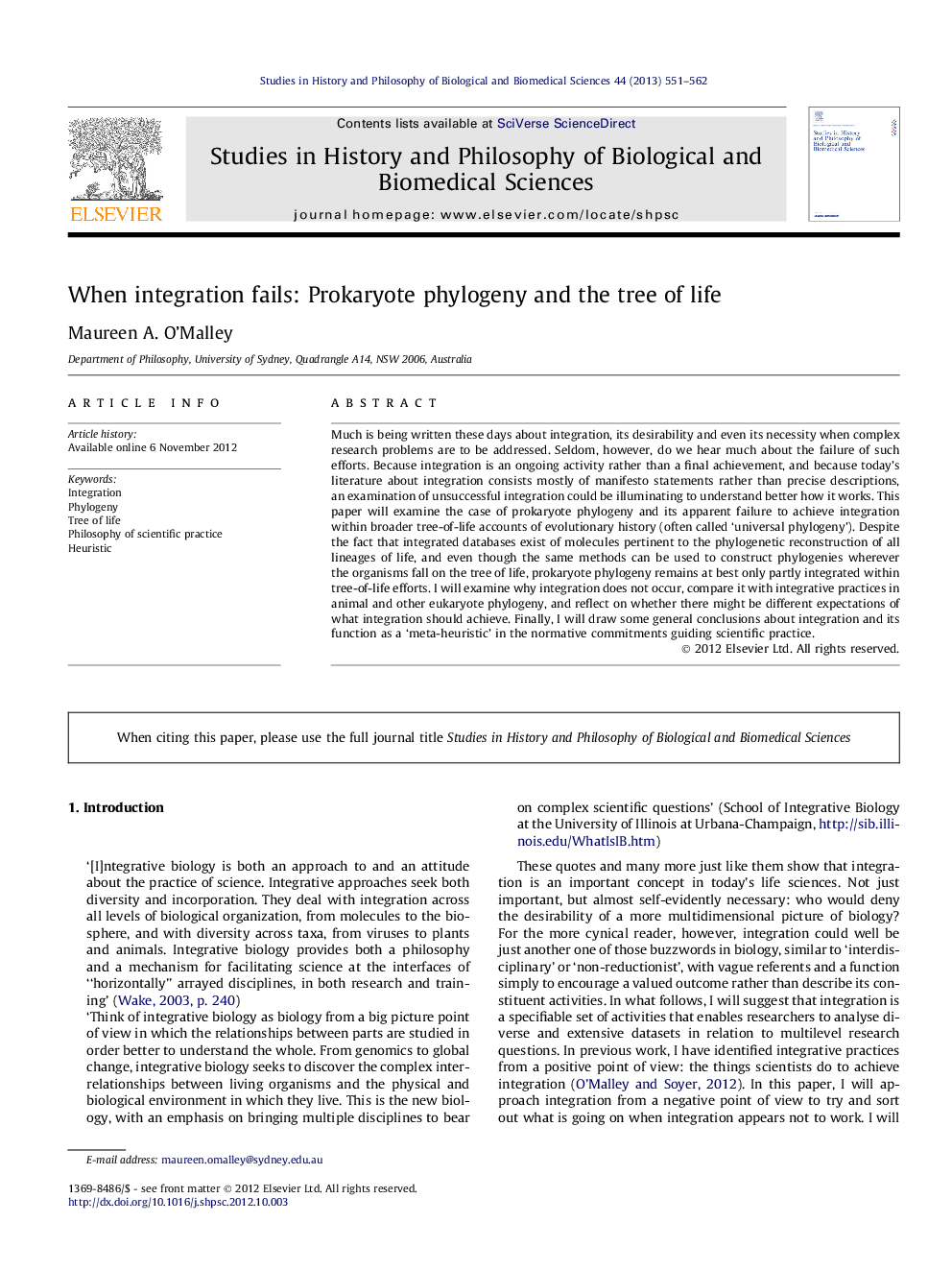| Article ID | Journal | Published Year | Pages | File Type |
|---|---|---|---|---|
| 1161229 | Studies in History and Philosophy of Science Part C: Studies in History and Philosophy of Biological and Biomedical Sciences | 2013 | 12 Pages |
Much is being written these days about integration, its desirability and even its necessity when complex research problems are to be addressed. Seldom, however, do we hear much about the failure of such efforts. Because integration is an ongoing activity rather than a final achievement, and because today’s literature about integration consists mostly of manifesto statements rather than precise descriptions, an examination of unsuccessful integration could be illuminating to understand better how it works. This paper will examine the case of prokaryote phylogeny and its apparent failure to achieve integration within broader tree-of-life accounts of evolutionary history (often called ‘universal phylogeny’). Despite the fact that integrated databases exist of molecules pertinent to the phylogenetic reconstruction of all lineages of life, and even though the same methods can be used to construct phylogenies wherever the organisms fall on the tree of life, prokaryote phylogeny remains at best only partly integrated within tree-of-life efforts. I will examine why integration does not occur, compare it with integrative practices in animal and other eukaryote phylogeny, and reflect on whether there might be different expectations of what integration should achieve. Finally, I will draw some general conclusions about integration and its function as a ‘meta-heuristic’ in the normative commitments guiding scientific practice.
• Integration occurs in regard to data, methods and explanations. • Prokaryote phylogeny struggles to be integrated into universal phylogeny from all three perspectives. • In animal and other eukaryote phylogeny, similarly non-integrative situations are found. • The problems of prokaryote phylogeny can be understood within a meta-heuristic account of integration.
